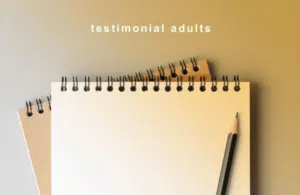
These-Real Life Testimonials were written by people who apply German New Medicine in their daily lives.
My son was accepted into a sports team, and we took him to a training camp for ten days. This was the first of several camps scheduled for the summer break. Taking him there was a family trip—three hours of driving each way.
I’ve been driving since I was 12—anything with a motor (except EVs, of course). I love driving, and my testosterone-fueled style leans toward sporty. Naturally, my wife also drives our car, even in heavy city traffic, but due to her estrogen dominance, her driving is more passive. She watches fuel consumption; I don’t care—the next gas station is surely to come. So far, so good.
I also have no problem as a passenger in other people’s cars, taxis, or buses. But in my own car, in my car I don’t sit in the passenger seat. If my wife and I are in the car at the same time, the natural law applies: the man drives. That’s self-evident for both of us.
When we left early yesterday to take our son to camp, I was still in a healing phase with my stomach—slight fever and nausea. Not ideal conditions for a three-hour drive.
So, I had a choice: let my wife drive alone with the kids while I stayed in bed (which I didn’t want), or take Ibuprofen to suppress the healing symptoms and force my body into sympathicotonia. But I only do that in emergencies, and this wasn’t one.
There was a third option: sit in the passenger seat and let my wife drive—even though I knew I’m a terrible passenger. And I was truly awful. Every time I saw brake lights ahead, I pressed my left foot against the floor and muttered, “Brake!”
I can control anything that drives, swims, or flies—but not from the passenger seat. I’m a nightmare backseat driver.
After about half an hour, still in the city, I noticed an unpleasant, throbbing pain in all my teeth—top, bottom, left, right. I was grinding them, clenching my jaw tightly. My jaw muscles were painfully tense. These symptoms made me realize I was in an active biting conflict—and I was constantly on track. It wasn’t about my wife or her driving.
A Chihuahua had awakened inside me, seeing everything outside our car as a threat, baring its teeth like a snarling little mutt.
The worst part? I couldn’t stop it, no matter how hard I tried. Just like obsessive thoughts in a conflict-active phase, I couldn’t control my biting reflexes. What now? If this continued, I’d arrive at camp toothless.
Eventually, I closed my eyes and reclined the seat. Instantly, my jaw relaxed. But the moment I peeked outside, my muscles tensed again. My trigger was any moving obstacle I could see. Knowing other cars were there wasn’t the issue—I just couldn’t look at them.
The best thing that could’ve happened did: I fell asleep. When I woke two hours later, we were driving through beautiful countryside—forests, green hills stretching endlessly. The road was straight, smooth asphalt. Perfect.
Then another car appeared in one mile distance ahead, coming toward us, and my jaw muscles locked up again. That’s when I realized: I have a real problem. I always knew I was a bad passenger—but not this bad. I should never sit in passenger seat. Not in my own car.
We finally reached the camp. The nap did me good, and my body used those hours to finish healing. By the return trip, I was fit enough to drive myself. I paid close attention to my teeth and jaw when other cars passed—no issues. Relaxed, as always. I love driving.
I don’t know where this biting conflict originated or when the DHS happened. But I’ve often noticed, even as a child, that I’d grind my teeth when riding with someone. I never thought much of it—until this extreme episode.
Though I love dogs, I never liked Chihuahuas—always yapping at anything that moves. But after this day, I understand them. Literally everything that moves is bigger than them, a threat to fend off. From now on, all Chihuahuas have my compassion.”
| Cookie | Duration | Description |
|---|---|---|
| cookielawinfo-checkbox-analytics | 11 months | This cookie is set by GDPR Cookie Consent plugin. The cookie is used to store the user consent for the cookies in the category "Analytics". |
| cookielawinfo-checkbox-functional | 11 months | The cookie is set by GDPR cookie consent to record the user consent for the cookies in the category "Functional". |
| cookielawinfo-checkbox-necessary | 11 months | This cookie is set by GDPR Cookie Consent plugin. The cookies is used to store the user consent for the cookies in the category "Necessary". |
| cookielawinfo-checkbox-others | 11 months | This cookie is set by GDPR Cookie Consent plugin. The cookie is used to store the user consent for the cookies in the category "Other. |
| cookielawinfo-checkbox-performance | 11 months | This cookie is set by GDPR Cookie Consent plugin. The cookie is used to store the user consent for the cookies in the category "Performance". |
| viewed_cookie_policy | 11 months | The cookie is set by the GDPR Cookie Consent plugin and is used to store whether or not user has consented to the use of cookies. It does not store any personal data. |
You’ll be informed by email when we post new articles and novelties. In every email there is a link to modify or cancel your subscription.